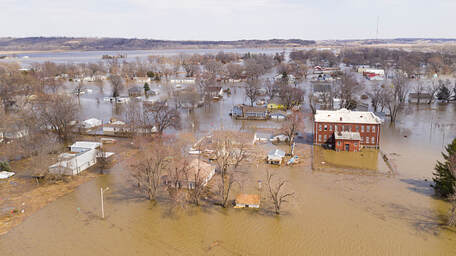 Finding affordable healthcare services is a challenge for the majority of Americans. Deductibles and out-of-pocket costs continue to increase, and many individuals simply cannot afford a health plan. Consumers are now looking to shop for their needed medical services based on value, which includes both quality and cost. Consumer choice and price transparency create incentives at all levels and motivate the entire system to provide better care for less money.  You never know when a natural disaster will strike, how long it will last or the extent of damage in its wake. Hurricane Harvey has been a heartbreaking reminder to all of us that at any point in time a disaster, the magnitude of which has never been seen before, can occur. While we may never know for certain when a natural disaster will strike, we can minimize damage and risk of harm by being prepared. The following tips discuss preparedness for any natural disaster and explore insurance coverage in this unfortunate situation.  While store credit cards might seem like a safe option compared to general-use credit cards, the truth is they can get cardholders into serious debt if not used responsibly. However, if used correctly, they can save money on both big-ticket items and smaller everyday things. If you’re thinking about opening a store credit card, below are some perks and pitfalls to consider when deciding if it’s the right decision for you and your finances.  What to do at the end of a loved one’s life can be extremely overwhelming, no matter the circumstance. Not knowing how to handle your loved one’s finances—or what type of financial situation you’ll be left to sort out—can make a difficult situation even worse. Putting financial affairs in order is key, especially when a loved one is facing a terminal illness. By working with your loved one soon after diagnosis to ensure their wishes are known and that you or another family member have the authority to carry them out, financial peace to the best extent possible can be achieved.  For many of us, traveling abroad is something we long to do but don’t know if we can ever afford. Even if you save enough money for plane tickets to Europe—or whatever your country of choice may be—the cost of accommodations, food, transportation, sightseeing, etc. while there may break the bank. But it doesn’t have to. As with everything else in life, it’s important to put together a travel budget and stick to it. Start with flights and accommodations, then divide the rest into categories such as food and activities. The tips below can help you stretch your dollar as far as possible while making memories that will last a lifetime.  April is National Financial Literacy Month, and it’s the perfect time to start talking with your children—no matter how young—about financial basics. Although many schools are beginning to teach personal financial education, research shows that most children determine their attitudes about money by the fifth grade. So it’s imperative as a parent to take matters into your own hands to help set your child on the path to financial success.  Financial fraud continues to be the fastest growing form of elder abuse. As the senior population in this country increases, so do the financial crimes committed against these vulnerable and trusting individuals. Elder abuse is particularly hard to combat because it frequently goes unreported, as do financial scams—making elder financial scams a relatively “low-risk” crime. Elderly victims are often confused, afraid or embarrassed to report crimes against them so the best way to protect your older loved ones is to educate them about common scams.  In December the Federal Reserve raised interest rates for just the second time in the last seven years. While the details of how much and when the Fed changes interest rates are subject to the speculation of economists, one thing is certain: a rise in interest rates has a definite effect on consumers. And, with the Fed signaling its intent to raise rates several more times throughout 2017, consumers should consider the potential impact that a rising interest rate environment can have on their wallets. These tips are intended to help you do just that.  Statistics show more than 15 million U.S. residents per year have been victims of identity theft since 2010. That’s why it is more important than ever to take extra precautions to protect your personal information and reduce your risk of identity theft. In the increasingly online world we live in, consumers need to be vigilant both online and offline to not become part of the rising statistic. Below are tips to help safeguard your information.  As the senior population in this country continues to grow, so do the financial crimes committed against them. Stealing seniors’ hard-earned money is one of the most prevalent forms of financial fraud that takes place today. Scammers are repugnant but not stupid, and they prey on the vulnerability, trusting nature and, often, the loneliness that make seniors an easy target. The best way to prevent this is education about the common scams and fraud techniques used by those who target the elderly. This means not only ensuring that seniors in your life know what to watch, but also that they will come to a loved one for advice before they take action when approached by someone asking for money or personal information. Listed below are some of the most common scams currently used to victimize seniors. |
AuthorWrite something about yourself. No need to be fancy, just an overview. Archives
December 2017
Categories
All
|
|
Pennsylvania Association of Community Bankers
800 N. 3rd Street, Suite 304 Harrisburg, PA 17102 Phone: (717) 231-7447 [email protected] | sitemap (C) All Rights Reserved Our Privacy Policy Our Copyright Policy |
"To empower community banks to make positive impact within the communities they serve."
|
